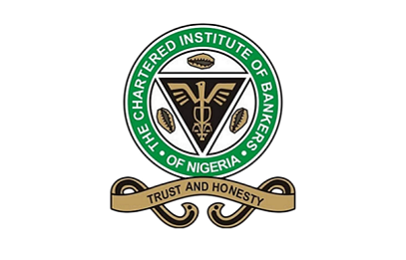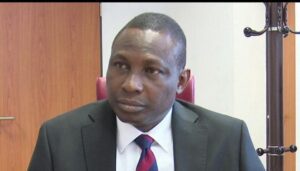


CIBN backs bank recapitalisation for enhanced economic growth
The Chartered Institute of Bankers of Nigeria (CIBN) has expressed support for the planned recapitalisation exercise for banks in the country.
Ken Opara, President/Chairman of Council, CIBN, expressed this during the 2024 annual lecture of the institute on Tuesday in Lagos.
Opara said adequate liquidity within the banking system was fundamental to fostering sustainable economic growth and development.
He said that the recapitalisation would further help banks to deepen liquidity and guarantee access to credit needed for economic growth and prosperity.
He said that CIBN and the Nigeria Exchange Group (NGX) had formed collaborations toward building capacity for the recapitalisation of banks.
Opara added that the institute was also collaborating with Africa Guarantee Fund (AGF) for capacity building for SMEs, preparing them and building their capacity to access finance.
He called for more allocation of credit to the real sector, which was the foundation of the nation’s economic activities for increased liquidity.
Opara stressed the need for addressing challenges faced by the sector to enhance its competitiveness against foreign counterparts.
To resolve the challenges, he urged the government to improve further the ease of doing business and infrastructural development, such as power, roads, and rail networks.
The CIBN president also called for industrial centres where companies could co-habit and share common infrastructure,
harmonise and reduce the various taxes and levies, including locating them in a single hub.
He said the theme, “Improving Availability of Credit in the Nigerian Real Economy: The Critical Importance of Liquidity”, was timely to address current challenges in the nation.
“As we navigate the complexities of our current economic landscape, it has become increasingly evident that ensuring adequate liquidity within the banking system is fundamental to fostering sustainable economic growth and development.
“The real economy comprises the agriculture, manufacturing, construction, and services sectors and serves as the tangible foundation of the nation’s economic activity.
“These sectors collectively represent the intricate web of goods and services that drive economic growth, create employment opportunities, and enhance the overall standard of living.
“Despite the significant relevance of the real sector, access to credit for such key sectors compared to other climes is relatively low,” he said.
He said a survey conducted in more than 40 economies and released by Statista in 2024 revealed that nearly 141 trillion dollars worth of credit was lent to the real sector in advanced economies in the second quarter of 2022.
He added that the figures were twice as high as the volume of credit to the same sector in emerging markets.
He commended improvements in liquidity within Nigeria’s real sector but called for increased credit to sector, particularly agriculture.
“According to data from the Central Bank of Nigeria (CBN), the Net Domestic Credit stood at 66.4 trillion Naira as of December 2022, showcasing the substantial credit extended by financial institutions to the real sector of the economy.
“This figure experienced a significant surge to 96.1 trillion Naira by December 2023, highlighting the tremendous potential for growth and development in the real sector,” he said.
He listed credit volume allocated to the key sectors, saying the Agricultural sector had N5.8 trillion representing about six per cent of the total credit.
He said the manufacturing sector had N19.7 trillion, representing approximately 21 per cent of the total credit, while the services sector had N36 trillion, representing 37.4 per cent of the total credit.
“I humbly propose that we consider offering more credit to these key sectors and particularly the agriculture sector.
“It is for this reason, ladies and gentlemen, that the recapitalisation exercise is a welcome development.
“The recently announced upward review of the Minimum Capital Requirements of Nigeria by the Central Bank of Nigeria would further empower banks to extend more credit to the economy’s productive sectors,” he said.
The Guest Speaker, Prof. Graham Penn, speaking on the theme, explained how other developed countries were leveraging on credit and the need for Nigeria to increase liquidity for economic prosperity.
Penn, a professor of International Finance Law at University College London, listed challenges and measures Nigerian banks, regulators and businesses could adopt to implement laws and regulations to facilitate true sale securitisation.



